Diego Arguello, JANUARY 21, 2022
Destroying objects while driving a Quadcrasher is one of the season quests available this week in Fortnite as Chapter 3 Season 1 continues rampant. Alongside the presence of Klombos, the focus is also on these all-terrain vehicles. You can find them scattered around the map, but if you just want to get the challenge out of the way at the start of a match without stumbling upon many players, here’s where to find Quadcrasher locations.
While there isn’t just one specific spot, you can find quadcrashers in Crackshot’s Cabin. From Logjam Lumberyard, you’ll notice a small cabin just south of the lake in between — I recommend dropping here from the battle bus at the start of the match.
Thankfully, this is a rather secluded spot. I only found another character but it seemed to be a bot, so it was easy to take it down.
If you look at the front of the house, you’ll see at least two Fortnite quadcrashers there.
Hop on the Quadcrasher and let’s complete the challenge.
Thankfully, the objective is straightforward enough. All you have to do is destroy 30 objects while driving a Quadcrasher. If you’re wondering exactly which objects, pretty much everything except for trees or already-built structures (meaning those that weren’t built by another player) will be destroyed by just driving against them.
From Crackshot’s Cabin, my route was the following: I drove around the cabin and hit every small tree in my way. There are also a few lamp posts, such as the one in the screenshot above, which are also easily destroyed with a gentle bump.
Of course, you can just drive the Quadcrasher towards any nearby town or point of interest — but this comes with the risk of finding players as they tend to be the most populated areas. Luckily, the gas station located southeast of Crakshot’s Cabin is a great spot
to wreak havoc.
Luckily, the gas station located southeast of Crakshot’s Cabin is a great spot
to wreak havoc.
It’s not elegant, but you can literally just crash against the station’s store a couple of times to destroy any nearby objects inside. In addition, the garage is open and filled with objects, so don’t be afraid to take your Fortnite Quadcrasher for a tour inside.
Alternatively, you can hop off the vehicle, destroy the entrance to the store using your pickaxe (just to avoid drawing any unwanted attention), and drive inside for a couple of seconds. There are enough items in place to finish the challenge on a whim.
Regardless of where you choose to complete the season quest to destroy objects while driving a Quadcrasher, it won’t take you more than a couple of minutes.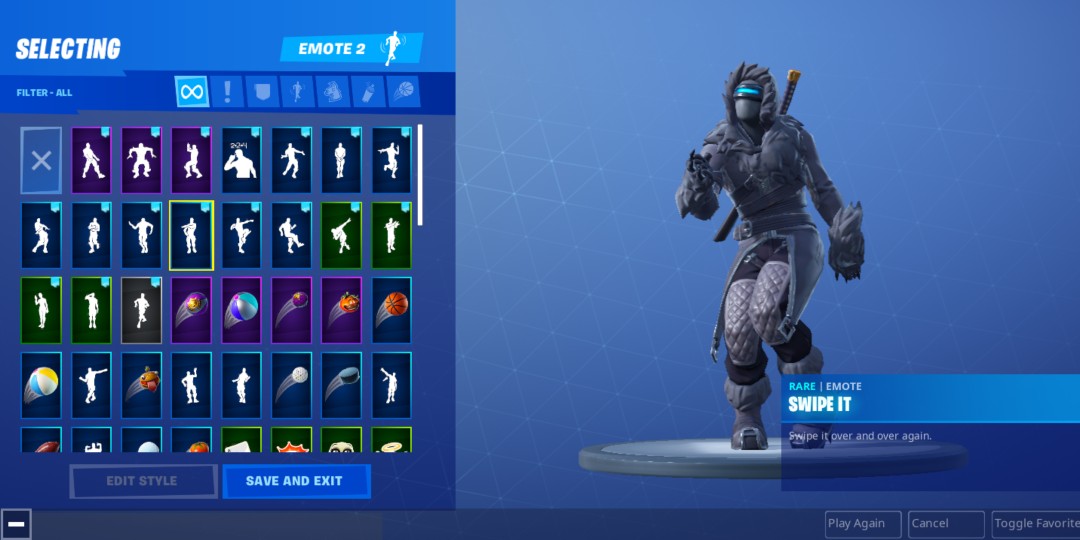 Lastly, this quest will reward you with 25,000 experience, which is a good boost if you’re still trying to get that Spider-Man skin from the battle pass.
Lastly, this quest will reward you with 25,000 experience, which is a good boost if you’re still trying to get that Spider-Man skin from the battle pass.
Fortnite
On this page
A Quadcrasher Spawner is a device that spawns a Quadcrasher vehicle onto your island at the spawner's given location and orientation.
You can place a player directly inside the Quadcrasher using a trigger.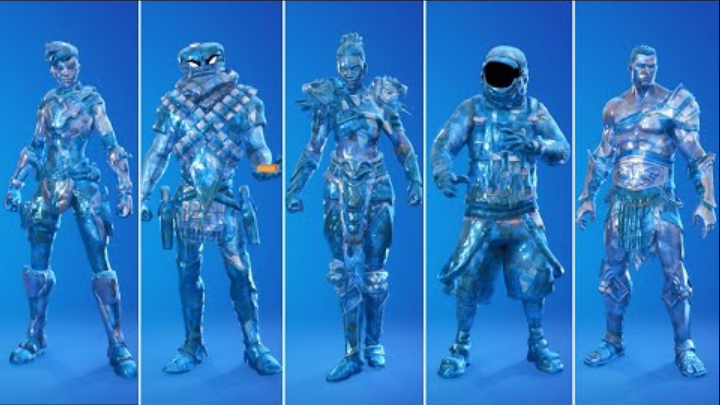
Click image to enlarge.
From Create mode, press the Tab key to open the CREATIVE inventory screen.
Click the DEVICES tab and scroll to select the device. You can also use the Search box or the Categories panel on the left to find your device.
Click PLACE NOW to place immediately, or put the device in the QUICK BAR to place later.
Press Esc to return to your island in Create mode. Use your phone tool to position the device, then left-click to place it. Press Esc to detach the device from your phone.
Point at the device with your phone. If the CUSTOMIZE popup doesn't open immediately, move closer until it does, then press E to open the CUSTOMIZE panel.
It's helpful to customize device names when you use multiple copies of the same device.
Some devices are affected by a feature called contextual filtering. This feature hides or displays options depending on the values selected for certain related options. This feature will reduce clutter in the Customize panel and make options easier to manage and navigate.
However, it may not be easy to recognize which options or values trigger contextual filtering. To help you identify them, in our device docs we use italic for any values that trigger contextual filtering. All options will be listed, including those affected by contextual filtering; if they are hidden or displayed based on a specific option's value, there will be a note about that in the Description field for that option.
This device has some basic functionality, like whether it is visible in game, or whether it supports wraps. Additionally, there are some advanced options, like which class and team can use the vehicle, and whether enabling or disabling the device spawns or despawns the vehicle.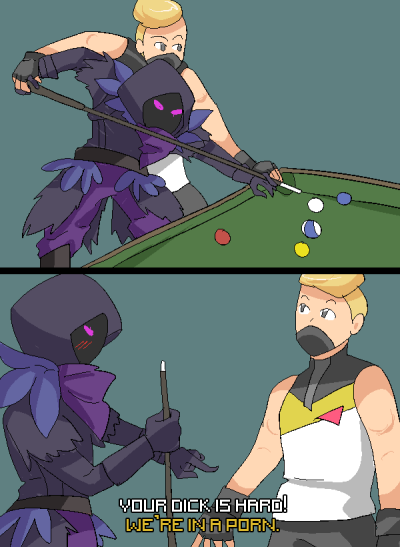
You can configure this device with the following options.
Default values are bold.
| Option | Value | Description |
|---|---|---|
| Visible During Game | On, Off | Determines whether the device is visible during the game. This does affect its collision properties. |
| Supports Wraps | Enabled, Disabled | Determines whether the vehicle supports wraps. |
| Option | Value | Description |
|---|---|---|
| Enabled During Phase | All, None, Pre-Game Only, Gameplay Only | Determines the game phases during which the device will be enabled. Pre-Game includes all phases prior to the Game starting (the waiting for players lobby on Featured Islands and the Game Start Countdown). |
| Respawn Time | Instant, Never, Pick a time | Respawns a vehicle that's been destroyed after a selected delay. |
| Respawn Vehicle when Enabled | Yes, No, Only if Needed | If this is set to Yes, a vehicle will spawn when the device is enabled. Choosing Only If Needed will not reset an existing vehicle. |
| Destroy Vehicle when Disabled | Yes, No | Destroys a spawned vehicle when the spawner is disabled. |
| Owning Team | Any, Pick a team | Sets the team the device belongs to. |
| Selected Class | None, Any, No Class, Pick a class | Determines what class can use this vehicle. Values for this option are:
|
| Vehicle Health | 150, Indestructible, Pick a number | Determines how much damage the vehicle can take before it is destroyed. |
| Fuel Consumption | Has Infinite Fuel, Uses Fuel | Determines if the spawned vehicle uses fuel. |
| Starting Fuel | Random, Pick a percentage | Only displayed when Fuel Consumption is set to Uses Fuel. The percentage of fuel in the vehicle's fuel tank at spawn. Random will spawn the vehicle with a percentage of fuel between 25% and 80%. |
| Fuel Use | Slow, Normal, Fast | Only displayed when Fuel Consumption is set to Uses Fuel. |
| Water Destruction Delay | Never, Instant, 5 seconds, Pick a time | When the vehicle is too deep in water to drive, destroy it after this delay. |
When one device needs to "talk" to another device, it does so by transmitting a signal on a specific channel. The receiving device needs to be set up to receive the signal on the same channel.
A channel is identified by a number, and channel numbers are customized for a device under the option that uses the channel. Most devices will also pass the identity of the player who triggered the device with the signal.
When the Quadcrasher Spawner device receives a signal on a channel, it can be enabled or disabled, can spawn or destroy a vehicle, and assign a driver. It can transmit a signal on a channel when a player enters or exits the vehicle, and when the vehicle is spawned or destroyed.
It can transmit a signal on a channel when a player enters or exits the vehicle, and when the vehicle is spawned or destroyed.
Receivers listen for a channel and perform an action when they hear any device (including themselves) send a signal on that channel.
| Option | Value | Description |
|---|---|---|
| Assigns Driver When Receiving From | No Channel, Pick a channel | Sets the player that instigated the signal as the spawned vehicle's driver |
| Respawn Vehicle When Receiving From | No Channel, Pick a channel | Spawns a new vehicle after receiving a signal on the selected channel. |
| Destroy Vehicle When Receiving From | No Channel, Pick a channel | When receiving a signal on the selected channel, the spawned vehicle is destroyed if it exists. |
| Enable When Receiving From | No Channel, Pick a channel | When a signal is received on the selected channel, the Quadcrasher spawner is enabled. |
| Disable When Receiving From | No Channel, Pick a channel | When a signal is received on the selected channel, the Quadcrasher spawner is disabled. |
Transmitters send a signal on the selected channel when triggered.
| Option | Value | Description |
|---|---|---|
| When Player Enters Vehicle Transmit On | No Channel, Pick a channel | Transmits a signal on the selected channel when a player enters the spawned vehicle. |
| When Player Exits Vehicle Transmit On | No Channel, Pick a channel | Transmits a signal on the selected channel when a player exits the spawned vehicle. |
| When Vehicle Spawns Transmit On | No Channel, Pick a channel | Transmits a signal on the selected channel when a vehicle is spawned or respawned. |
| When Vehicle is Destroyed Transmit On | No Channel, Pick a channel | Transmits a signal on the selected channel when a vehicle is destroyed. |
ATV riding techniques could be the subject of a full book. In the same article, we want to reveal to you the basics of safe riding. At first glance, there is nothing complicated in driving ATVs - you just need to steer and enjoy riding.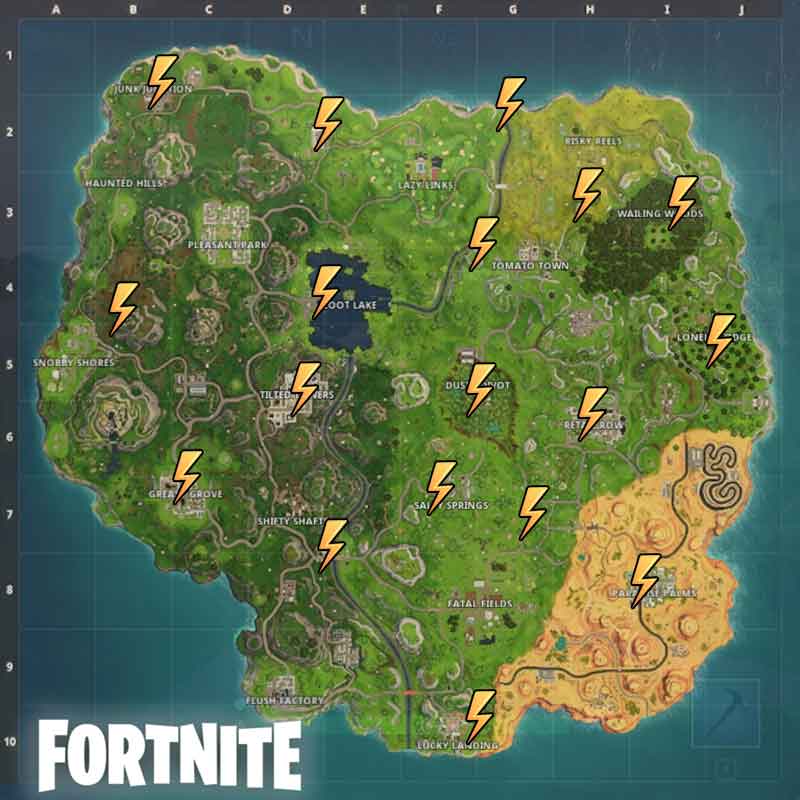
When driving over bumps, for example, those of the "wave" type, the driver must change his position all the time. So, when approaching an obstacle, you must shift your body back, otherwise you can hit the obstacle with your wheels. When driving over a bump, you need to move the body back forward, thus preventing excessive separation of the front wheels, i.e. rearing up the ATV. Then, when the rear wheels come off the ground, you need to move back again, otherwise you can fall out of the saddle, hitting your knees on the steering wheel.

Moving in a straight line at low speeds (up to 40 km/h), you can afford to relax. But at higher speeds or when passing sharp turns and slopes, the driver must move very actively. Indeed, due to the high center of gravity, short wheelbase and small width, ATVs are very prone to rollovers. In addition, if the motorcycle flies separately from the motorcyclist during falls, then the ATV most often covers the driver. Therefore, in order for ATV riding not to end with serious injuries, it is necessary to study the driving rules and strictly follow them.
ATV rider's weight is an important factor that affects machine handling. By shifting their weight, the driver can unload or load the front or rear of the ATV, thus compensating for centrifugal forces.
The first rule you need to learn is that when riding an ATV, you need to relax your arms. When driving, the driver can always let go of his hands, because his legs are holding him in the saddle. As the speed increases, the load on the legs also increases.
Conventionally, three racks are distinguished. The middle stance is used when driving in a straight line without turning. When opening the gas, the body must be moved forward to unload the hands. Thus, the front strut is obtained. When braking and closing the gas, the body, on the contrary, must be moved back, i.e. take a back seat. By the way, the word "stand" comes from the word "stand", and this name is not accidental. When actively riding an ATV, you do not have to sit. Standing on an ATV lowers your center of gravity. After all, there is a huge difference between the weight on a high saddle and the weight on the footrests. And the effect of moving the body in a standing position is much greater than from fidgeting back and forth on the saddle.
When going through a turn on a motorcycle, it is tilted inward, thus struggling with centrifugal force. But you can't do that with a quad bike. Therefore, it is necessary to use the weight of the driver. The main rule here is to always transfer the weight inside the turn. Moreover, it is necessary not only to tilt your shoulders. It is necessary to hang the entire body, including the fifth point. Only the shin and knee hold on to the saddle. Of course, if you turn at minimum speed, then you can limit yourself to turning the steering wheel.
The correct stance is characterized by slightly bent knees, elbows set apart, and a slightly arched and relaxed back. Why not stand on straight legs or keep your back straight and tense? Because bent knees allow you to absorb shock coming from uneven terrain. By the way, the force of these blows is sometimes quite enough to knock the driver out of the saddle. A straight tense back under such conditions can lead to injury to the intervertebral discs and even a compression fracture of the spine. Yes, and the internal organs with the wrong fit will have a hard time.
Yes, and the internal organs with the wrong fit will have a hard time.
Active ATV riding requires good physical shape. So, in quad schools, the duration of the lesson does not exceed an hour, and at the end of the lesson, students can literally be squeezed out. And riding an ATV off-road is also an activity worthy of training in the gym.
When riding non-sport ATVs, it is best to avoid jumping. Firstly, this way you can break the ATV. Secondly, in order to safely perform such tricks, the ATV motor must have high-torque and fast response to the throttle. If, nevertheless, the jump could not be avoided, then it is necessary to land in the middle stance, but be ready to move to the back. When the wheels touch the ground, you need to slightly open the gas. It is better not to use four-wheel drive when jumping.
Every time you ride an ATV, you need to practice looking into the distance. This is necessary to develop the habit of evaluating the trajectory of movement in advance.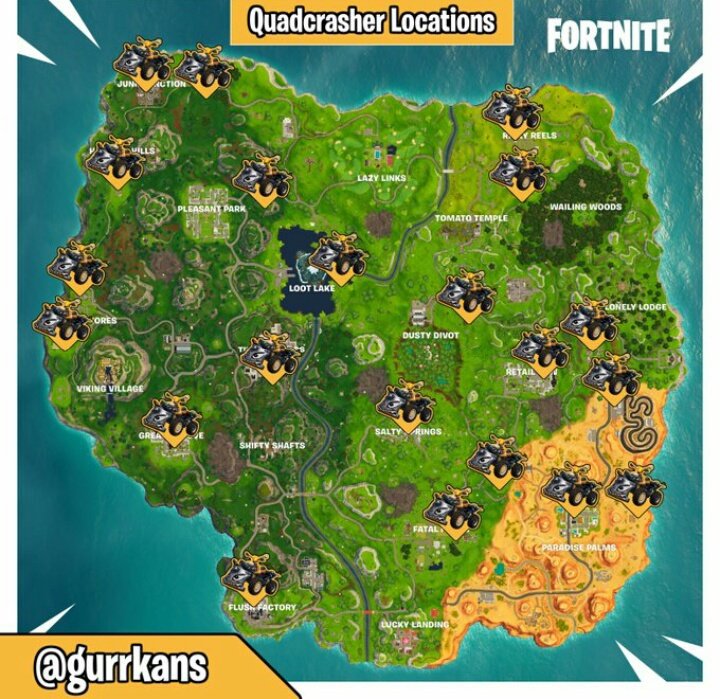 Beginners often do not have time to track the road, and at some point they are not ready to perform adequate actions. And another, very predictable obstacle, can become a problem for them.
Beginners often do not have time to track the road, and at some point they are not ready to perform adequate actions. And another, very predictable obstacle, can become a problem for them.
| When moving along a slope, it is necessary to move the body in the direction opposite to the slope. On the steepest sections, full overhang should be used, such as when cornering at speed.
|
Before you start climbing, you need to pick up speed. Then the resulting inertia will allow you to smoothly drive into the steepness. If you suddenly open the gas directly on the rise, the ATV may tip over. Climbing should be in the most forward stance and on medium gas. If the incline is too steep, the ATV may roll backward when the throttle is released. In this case, you should not brake with the front axle, not the rear. If the ATV starts to roll over, you can try to jump to the side, but this acrobatic stunt is unlikely to be successful.
If you suddenly open the gas directly on the rise, the ATV may tip over. Climbing should be in the most forward stance and on medium gas. If the incline is too steep, the ATV may roll backward when the throttle is released. In this case, you should not brake with the front axle, not the rear. If the ATV starts to roll over, you can try to jump to the side, but this acrobatic stunt is unlikely to be successful.
If the driver moves his torso out of the turn, then his centrifugal forces will pull him to the outer radius, and in order to stay in the saddle, he will need to firmly grip the steering wheel. At the same time, the ATV will definitely try to roll over. To avoid such an unpleasant situation, it is always necessary to remember a simple rule - to shift the body only in the direction of rotation. Those. if we turn to the left, then we shift the body to the left side, and vice versa.
Descents must be made in the C-pillar. In this case, the arms must be extended and slightly bent at the elbows. There is no emphasis on the hands, you can even let them go, holding on with your feet. The steeper the descent, the more the driver must move the body back. The lower photos show the consequences of a descent in an incorrect landing. The main mistakes - the driver shifted the weight forward and pressed his hands to the body.
In this case, the arms must be extended and slightly bent at the elbows. There is no emphasis on the hands, you can even let them go, holding on with your feet. The steeper the descent, the more the driver must move the body back. The lower photos show the consequences of a descent in an incorrect landing. The main mistakes - the driver shifted the weight forward and pressed his hands to the body.
ATVs (all-terrain vehicles) are compact and versatile vehicles. They are used for extreme recreation and sports competitions. They can effortlessly ride off-road and rough terrain. Wide wheels and a powerful engine make it easy to overcome dirt roads, potholes, ravines and slopes. Many summer residents, hunters and fishermen prefer to travel on ATVs. They can carry goods. In winter, they replace snowmobiles. A trip on such motor vehicles brings a lot of pleasant emotions. However, quad biking is an extreme form of transportation. And it is better to do it with professional instructors of the QuadRider club. Unlike motorcycles and other vehicles, they have a short wheelbase, narrow width and high center of gravity. Improper driving often leads to rollovers. Important to know how to drive an ATV correctly to avoid dangerous accidents. Appropriate training and compliance with driving rules is a guarantee of safety not only for drivers, but also for pedestrians.
They can effortlessly ride off-road and rough terrain. Wide wheels and a powerful engine make it easy to overcome dirt roads, potholes, ravines and slopes. Many summer residents, hunters and fishermen prefer to travel on ATVs. They can carry goods. In winter, they replace snowmobiles. A trip on such motor vehicles brings a lot of pleasant emotions. However, quad biking is an extreme form of transportation. And it is better to do it with professional instructors of the QuadRider club. Unlike motorcycles and other vehicles, they have a short wheelbase, narrow width and high center of gravity. Improper driving often leads to rollovers. Important to know how to drive an ATV correctly to avoid dangerous accidents. Appropriate training and compliance with driving rules is a guarantee of safety not only for drivers, but also for pedestrians.
Before driving an ATV, you must do the following:
 For driving in the cold season, you will need thermal underwear. Accessories should be practical and comfortable. You can buy them in specialized stores. Wearing protective gear greatly reduces the chance of injury.
For driving in the cold season, you will need thermal underwear. Accessories should be practical and comfortable. You can buy them in specialized stores. Wearing protective gear greatly reduces the chance of injury. Operating a vehicle without a license and skills is fraught with serious injuries and large fines.

Strictly prohibited:

The rider's weight has a big impact on the handling of the ATV. Centrifugal forces are compensated by transferring body weight to the rear or front of the vehicle. Quads are a powerful technique, prone to tipping over and slipping. Wrong driving can cost lives. In this regard, it is necessary not only to know0126 how to ride a quad bike , but also to learn the basic rack.
When riding an ATV standing up, it is easier to avoid tipping over. There are 3 main stances common among ATVs. Each of them is used in certain situations.
 The arms are slightly bent and turned outward.
The arms are slightly bent and turned outward. A dangerous stance option is a tense back and straight legs. In this position, the body cannot absorb shocks and shocks. The spine and joints are subjected to enormous loads. In this situation, control over transport worsens.
The main ATV controls are located on the steering wheel. On the right handle are: throttle trigger, differential lock switch (2WD / 4WD / LOCK) and fuse. On all-wheel drive, cargo transportation, off-road driving and slippery roads are usually carried out. The differential lock ensures the synchronous rotation of the wheels. On the left side of the steering wheel is the ignition switch, engine start button, headlight switch and horn button.
Sit in a correct and comfortable position on the ATV. Place your feet on the footrests and place your hands on the handlebars. Insert the key into the ignition switch and turn it to the "ON" mark. Then depress the brake pedal and the electric starter button. Hold the starter button for 5 seconds until the engine starts.
When the motor starts, let it run for 1 minute. In the cold season, warm it up for about 5 minutes. Before you start driving, make sure that there are no obstacles in the way (other vehicles and pedestrians). To move off, shift the gearbox to overdrive H. Release the brake pedal and gently press the gas trigger with your right thumb until you reach the desired speed.
Slow down on curves and turns. Turn as far as possible. Entering the turn, lean your whole body and lower body into the turn. If you turn right, shift your body weight to the right. If you turn left, lean your whole body to the left side. In this way, you will avoid falling and overturning the ATV.
If you turn right, shift your body weight to the right. If you turn left, lean your whole body to the left side. In this way, you will avoid falling and overturning the ATV.
Correct gear shifting and ATV should be carried out after it has come to a complete stop. Release the throttle lever and press the brake pedal. Move the gearshift lever to the desired position. The selected gear indicator should light up on the instrument panel. The gear lever must be in the "H" (normal high gear) or "L" (extreme low gear) position. The "R" mode is used for reverse.
Pick up speed before entering the hillock. Drive only in a straight line. Move your body forward. Maintain a smooth speed after opening the throttle. Don't lose your vigilance. Try not to drive on hills, the angle of which exceeds 25 °. Climbing a hillock or a steep slope, do not step on the gas abruptly. Drive at medium engine speeds. If the ATV begins to roll backwards while climbing a hill, get up and apply the front brake. In this case, it is not necessary to use the engine power and the rear brake. If the quad has stopped, apply the rear brake and move the gear lever to park. Put the handcuff on the transport, turn around manually and try to repeat the ascent to the hillock again. To descend, take a back stance and bend your elbows slightly. Shift into low gear. To avoid tipping over, apply both front and rear brakes at the same time. Do it smoothly. Do not press the gas trigger when descending. Do not change the set trajectory of movement.
Drive at medium engine speeds. If the ATV begins to roll backwards while climbing a hill, get up and apply the front brake. In this case, it is not necessary to use the engine power and the rear brake. If the quad has stopped, apply the rear brake and move the gear lever to park. Put the handcuff on the transport, turn around manually and try to repeat the ascent to the hillock again. To descend, take a back stance and bend your elbows slightly. Shift into low gear. To avoid tipping over, apply both front and rear brakes at the same time. Do it smoothly. Do not press the gas trigger when descending. Do not change the set trajectory of movement.
You need to drive down the slope in low gear, moving the body towards the top of the hill. Hang your body completely on the steepest slopes. On the slopes, you can not brake sharply and pick up speed sharply. If the slope is slippery and steep, try to take a different path.
Start braking well in advance before coming to a complete stop. To slow down, release the throttle. ATVs stop quickly. But in an emergency, press the foot pedal or brake lever. Stop on a level, level surface. After stopping, shift into neutral. This will help to avoid unforeseen situations when disembarking from the vehicle.
After learning how to ride the ATV, learn how to drive on flat terrain without obstacles and other moving vehicles. Make sure the brakes are working at low speed when starting, turning and stopping. At first, try to avoid jumps and high speeds. Also, avoid jumping when riding a sports ATV. With a sufficiently high power, quadrics cannot accelerate much. But, if you press the throttle trigger hard and sharply, the torque is quickly transferred to the wheels, and the ATV can jerk forward sharply. Try to avoid dangerous obstacles.